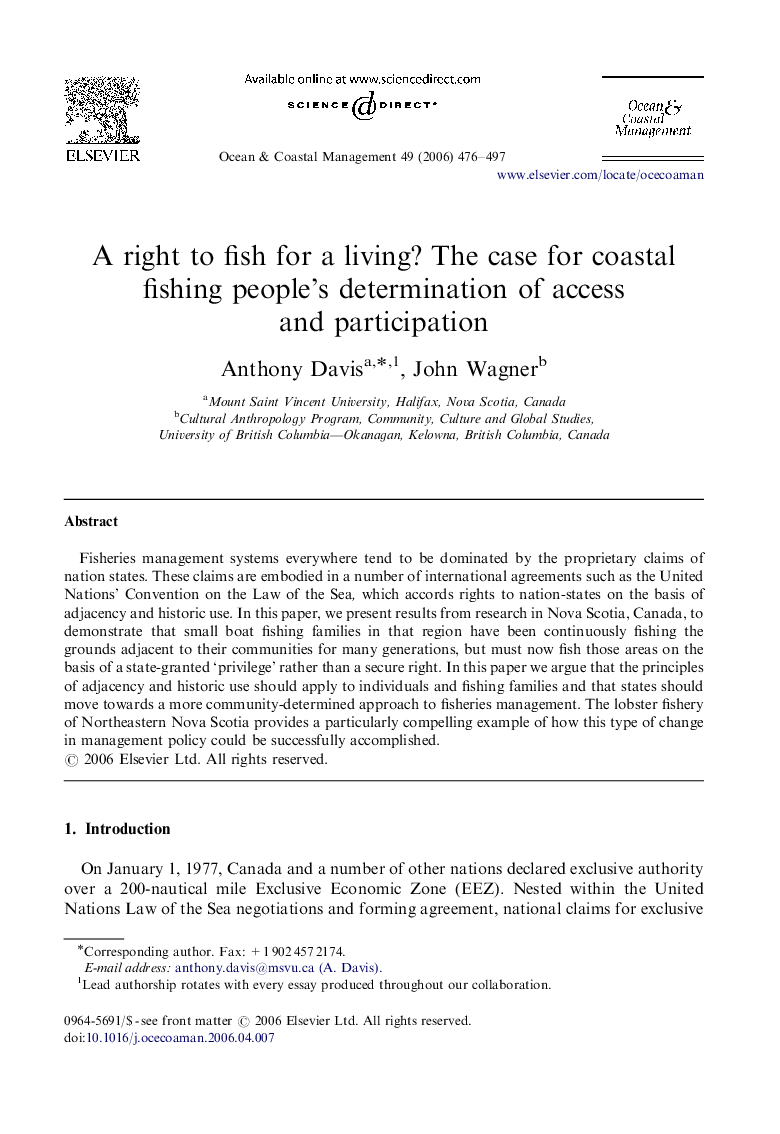| Article ID | Journal | Published Year | Pages | File Type |
|---|---|---|---|---|
| 1724846 | Ocean & Coastal Management | 2006 | 22 Pages |
Fisheries management systems everywhere tend to be dominated by the proprietary claims of nation states. These claims are embodied in a number of international agreements such as the United Nations’ Convention on the Law of the Sea, which accords rights to nation-states on the basis of adjacency and historic use. In this paper, we present results from research in Nova Scotia, Canada, to demonstrate that small boat fishing families in that region have been continuously fishing the grounds adjacent to their communities for many generations, but must now fish those areas on the basis of a state-granted ‘privilege’ rather than a secure right. In this paper we argue that the principles of adjacency and historic use should apply to individuals and fishing families and that states should move towards a more community-determined approach to fisheries management. The lobster fishery of Northeastern Nova Scotia provides a particularly compelling example of how this type of change in management policy could be successfully accomplished.
